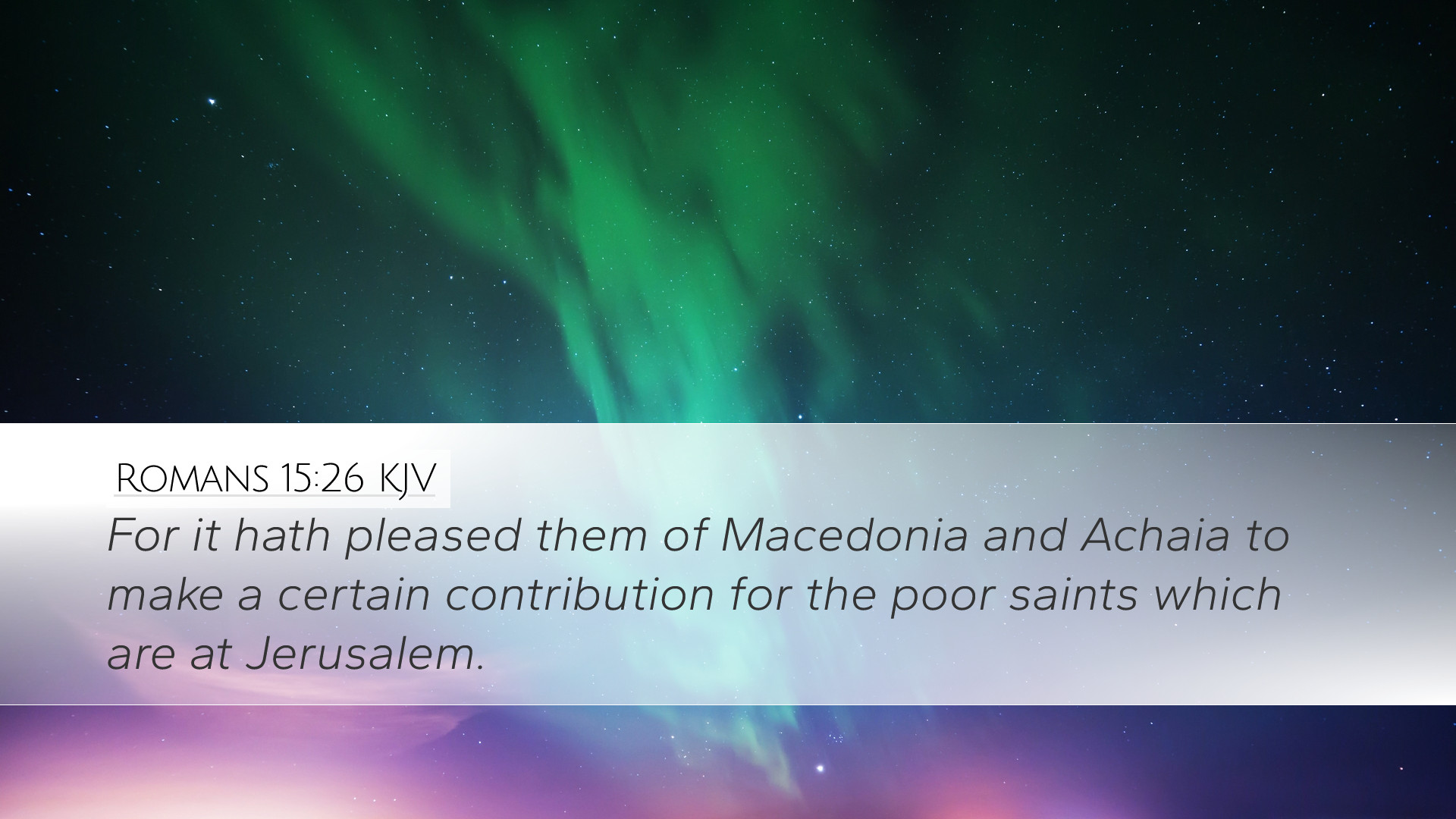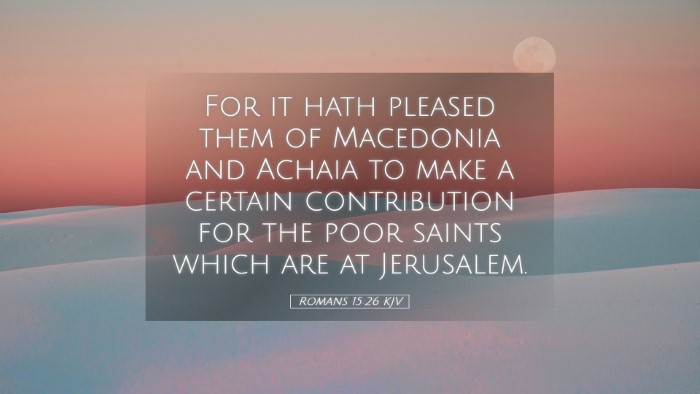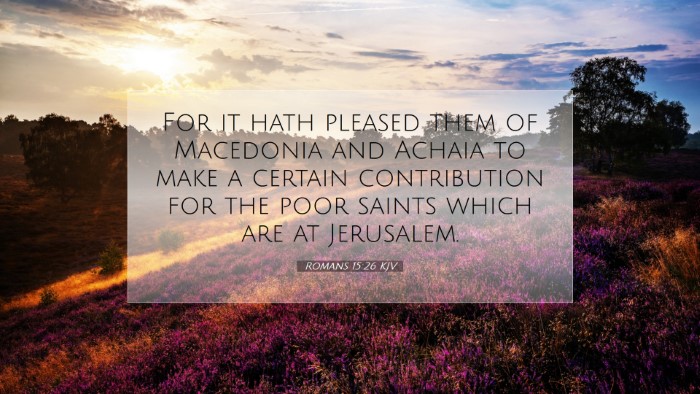Commentary on Romans 15:26
Verse Text: "For it hath pleased them of Macedonia and Achaia to make a certain contribution for the poor saints which are at Jerusalem."
Introduction
The Apostle Paul, in his epistle to the Romans, addresses several pivotal issues concerning the early Christian church. In Romans 15:26, he highlights a significant act of charity from the Gentile believers to the Jewish saints in Jerusalem. This verse encapsulates profound theological, socio-political, and spiritual implications. The commentaries from stalwarts like Matthew Henry, Albert Barnes, and Adam Clarke provide rich insights into this passage.
Theological Implications
Unity in Diversity: The giving by the Gentile churches in Macedonia and Achaia signifies the unity of believers in Christ, transcending cultural and racial boundaries. Paul often emphasizes that in Christ, there is neither Jew nor Gentile (Galatians 3:28). Henry points out that this act of charity symbolizes a coming together, reflecting the communal nature of the church.
Acts of Charity: Paul highlights that the contribution was motivated by the grace of God upon the Macedonians and Achaia. Barnes notes that it was not merely a duty but a pleased action stemming from true Christian love. The act of giving showcases the spirit of selflessness inherent in the body of Christ, reinforcing the notion that Christians are called to support one another in times of need. Clarke expounds further, indicating that such contributions are necessary to maintain fellowship among believers.
Social Context
The poverty of the Jerusalem church is a significant theme throughout the New Testament. The early Christians in Jerusalem often faced persecution and economic hardships. Paul’s collection effort serves not only as a practical response to their needs but also as a means to foster relationships among diverse Christian communities.
Macedonian Generosity
In 2 Corinthians 8, Paul vividly describes the Macedonians as having given out of their deep poverty, showing that generosity comes not from abundance but from a willing heart. Henry points out that the sacrifices made by the Macedonian churches reflect a deeper understanding of their spiritual heritage and the blessings they received through the Jewish tradition.
Achaia's Contribution
Achaia, representing the church at Corinth, also played a crucial role in this donation. Clarke notes that Corinth was a wealthy city, and thus their contribution holds a significant message regarding the responsibility of the affluent to assist their poorer brethren.
Spiritual Lessons
Gratitude and Reciprocity: The infusion of support from Gentile believers is a testament to their gratitude for the spiritual riches they have received from the Jewish believers. Barnes emphasizes that such reciprocity is fundamental in the church; those who have received should freely give, demonstrating the interconnectedness of the body of Christ.
Preparedness for Good Works: Paul’s appeal for contributions illustrates the readiness of the church to engage in good works. Henry argues that this is a reflection of true faith—being actively involved in meeting the needs of others. James 2:26 underscores that faith without works is dead, thus highlighting the essential nature of works arising from genuine faith.
Conclusion
Romans 15:26 serves as a compelling reminder of the early church’s commitments to community, charity, and unity. The implications of this verse extend beyond the historical context to inform present-day discussions on generosity, interdependence, and the global mission of the church. The contributions from the Gentile churches to the Jewish believers are emblematic of a larger narrative of love, support, and the mutual obligation that exists within the body of Christ. As pastors, students, theologians, and scholars, it is imperative to reflect on these themes and apply them in contemporary ministry and community life.
Key Takeaways
- Unity in Christ: The offering demonstrates that believers are united beyond ethnic and cultural differences.
- Charity as an Act of Worship: The contributions represent not just financial aid, but a vital expression of faith and gratitude.
- Importance of Community Support: This passage teaches the importance of the church coming together to uplift those in need.


